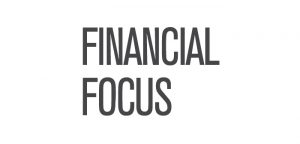Who knows where the time goes? Although 2015 is almost in the books, you can still make some year-end investment and financial moves that may help you get off to a good start in 2016. Here are a few suggestions:
Boost your 401(k) contributions. Ask your employer if you still have time to add more to your 401(k) before the year ends. If not, at least increase your contributions in 2016, especially if your salary goes up.
Consider “tax-loss” selling. We experienced considerable turbulence in the financial markets this past year, so you may own some investments that have lost value. Generally speaking, it’s a good idea to hold these investments if they still meet your needs, but if you do decide to sell them, you can use the loss to offset capital gains taxes on investments you’ve sold that have appreciated. If the loss from the sale was greater than your combined long- and short-term capital gains, you can deduct up to $3,000 against other income. And if your losses exceed your capital gains by more than $3,000, you can carry the remaining losses forward to future tax years.
Review your asset allocation. Make sure your asset allocation – that is, your investment mix – is still appropriate for your time horizon and goals. You might consider being a bit more aggressive if you’re not meeting your financial targets, or more conservative if you’re getting closer to retirement. If you want greater diversification, you might think about adding an asset class that tends to react to market conditions differently from your existing investments. Diversifying your portfolio may help reduce the impact of volatility; however, diversification, by itself, can’t guarantee a profit or protect against loss. If you do need to adjust, or “rebalance,” you can do so fairly easily in tax-deferred accounts, such as your IRA or 401(k) – but for those investments held in a taxable account, you should talk to your tax advisor on how to manage the tax consequences of rebalancing.
Evaluate your insurance situation. This past year, did you undergo any changes in your personal life, such as marriage, divorce or the addition of a new child? If so, review your life and disability insurance to make sure they are sufficient for your needs, and list the proper beneficiaries on all insurance policies.
Start an emergency fund. If you don’t already have one, start an emergency fund before the year is out. Ideally, you’d like to have between six and 12 months’ worth of living expenses in such a fund; without it, you might be forced to dip into your long-term investments to pay for unexpected costs, such as a new furnace, a major car repair or a big medical bill. For this fund, you’re less interested in return than in preservation of principal, so put your money in a low-risk, liquid account.
Making these moves can help you close out 2015 on a positive note – and ring in the new year with greater confidence in your financial future.
This article was written by Edward Jones for use by your local Edward Jones Financial Advisor.





